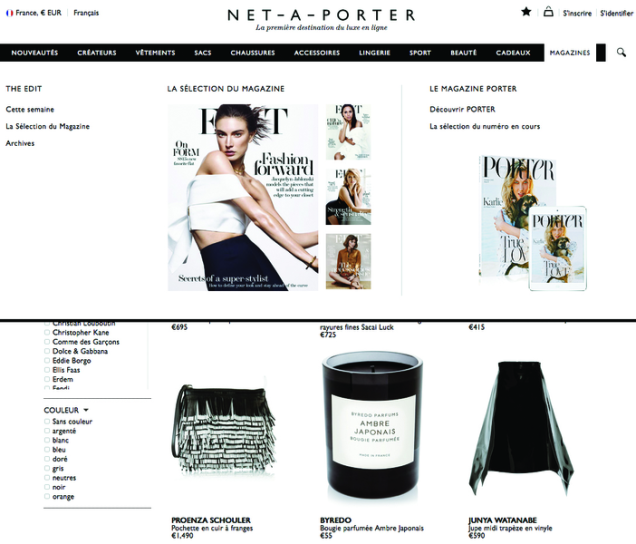A few years ago I interviewed Natalie Massenet, founder of online fashion retailer Net-a-Porter. When I read last week that a rival e-commerce site, Yoox, had merged with Net-a-Porter, I recalled a few highlights from our conversation. One of the most striking things she told me concerned packaging. Right from the start, Massenet and her colleagues realised that, in order to compete with physical stores, the actual experience of receiving an item in the post had to be amazing. “The internet tends to be associated with discounting and no-frills. But this is a luxury service, offering not last season’s fashions, but next seasons fashions. And you should see the gorgeous packaging it arrives in.” Her aim, she told me, was to make recipients cry with joy.
The other memorable thing she said was about content. Before founding her site, Massenet had worked at the magazine Tatler. So it was natural for her to conceive of her site as a combination of magazine and catalogue, with articles about trends and designers. “It’s a fashion magazine where you can click to buy the things you like. What could be more fun than that?”
This was back in 2000, long before people were talking about branded content or native advertising. As a fashion journalist, Massenet knew not only that her potential customers loved to read, but also exactly what they liked to read about.
This insight, perhaps more than the gorgeous packaging, may have been the key to Net-a-Porter’s success. Just listen to Yoox founder Federico Marchetti, who explained the reasons for the merger to The New York Times: “Editorial content has never been our strength or priority at Yoox. But it is very important for social media, which is driving millennial sales in the e-commerce space.”
You may worship at the feet of big data, but it is of little importance if you don’t have an audience in the first place. The longer the digital revolution continues, the more I’m convinced: “Content is where I expect much of the real money will be made on the Internet, just as it was in broadcasting.” Actually, I didn’t write that. Bill Gates did, in a famous article headlined “Content is King”. In 1996.




